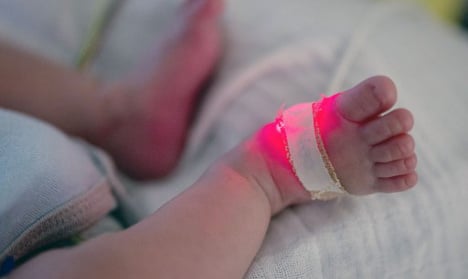Valproate, the active substance in anti-convulsion drug Dépakine, prescribed in France for epilepsy and bipolar disorder, has been linked to heart, kidney and spine defects as well as autism and developmental delays. Authorities have been sharply criticized for their slow reaction in preventing pregnant women from taking the drug.
In total, 8701 children were born to women taking the drug over the seven-year period, the study published on Wednesday said, accounting for two in every 1000 pregnancies in France over the period.
This is despite the fact that since 2006, the leaflet enclosed with the drug advised against taking it during pregnancy; this warning was added to the outer box in 2014. It wasn't until 2014 that a European report urged all countries on the continent to review their conditions for prescribing valproate “to minimize risks”.
A compensation scheme will be established for those affected, Health Minister Marisol Touraine said on Wednesday. Parliament will vote on the scheme later in the year. Touraine also pledged that in the next six months, further measures would be put in place to support the patients “completely”.
The study, published by ANSM (French National Agency for Medicines and Health Products Safety), did not give a figure for how many of the babies suffered from birth defects due to the exposure to the drug.
However, previous studies on the effects of valproate have shown that babies born to mothers who have taken the substance have a ten percent risk of suffering from heart, kidney or spine defects, and a 30-40 percent risk of being affected by delayed development or autism.
A report released in February by France's social affairs inspectorate (IGAS) estimated that around 450 French babies had been born with congenital defects after being exposed to valproate in utero. The inspectorate arrived at this number by extrapolating data obtained in the Rhone-Alpes region, it said.
Then, IGAS criticized “the lack of reactivity” from ANSM and Sanofi, the pharmaceutical company which has produced the drug in France since 1967. In 2008, two years after the drug was officially not recommended to be taken during pregnancy, an IGAS study showed that one in five doctors and one in three pharmacists were still unaware of the effects of valproate on unborn children.
“This is a huge health scandal that could have affected between 50,000 and 70,000 people over 50 years of prescription,” said Marine Martin, president of Apesac, an organization set up to assist parents affected by Dépakine, cited by Ouest-France. According to Apesac's figures, 2426 babies have been affected by the drug, of whom 401 have died.




 Please whitelist us to continue reading.
Please whitelist us to continue reading.
Member comments